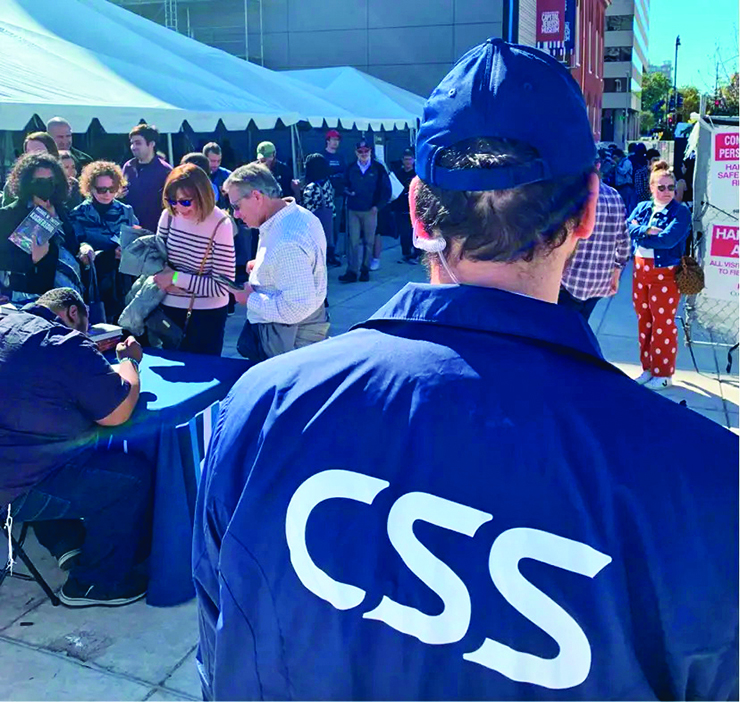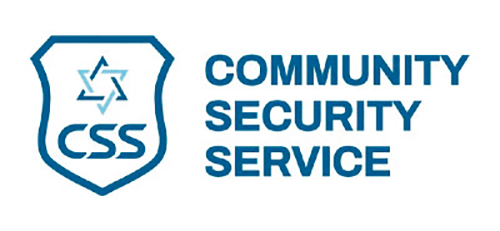
Security threats at Jewish institutions are nothing new, but in the aftermath of October 7, security professionals across the country have new threats and protocols to consider. In an effort to keep the community up to date on these developments, The Jewish Link sat down with several of the leading experts on institutional safety. What’s on the horizon for schools and synagogues when it comes to security?
Neil Cohen, president of Mogen Safety Council (MSC), started out his career as a federal criminal investigator. After 9/11, he felt that Jewish institutions were vulnerable targets and someone needed to better protect them, so he started MSC with the help of a retired NYPD officer and a federal agent. Since October 7, he has noticed not only a need for more security, but also a willingness for organizations to incur more costs to improve it. One of the most costly measures in the realm of security is armed security guards; previously, there was more of a willingness to hire unarmed security but because of the higher level of training armed personnel require, there’s much more demand for armed security now.
Cohen mentioned that even before October 7, shuls were a relatively common target. Now, however, shuls are seen even more as extensions of Israel, especially if they have words like “Israel” or “Zion” in their names. A takeaway he learned from the October 7 massacre is that Jewish institutions need to take more ownership of their security. “We can’t just simply rely on the police to protect us—that’s one lesson that we can take away from the October 7 attack, that they weren’t able to respond effectively and it required civilians to defend themselves. The police and IDF weren’t able to do so quickly enough.”

In light of recent Israeli real estate events retreating into protection and privacy, Cohen believes that it can be interpreted as a sign of weakness. Retreating may protect us in the short term, but it only encourages “hate-mongers” to continue, as it shows that they are succeeding. The community doesn’t necessarily have to go out of its way to show strength, but continuing in its day-to-day activities shows strength enough. Cohen asked, “Where does it stop? We won’t use Jewish institutions for those functions anymore? Do we stop having pro-Israel programming or marching in the Israel Day Parade?”
Cohen warned that although no recent antisemitic security threats have been fatal, the threats that currently exist in Europe and the Middle East are migrating to the U.S. It’s becoming clearer that Europe’s threats, such as in France, the United Kingdom and Belgium, are beginning to replicate themselves here. Bomb threats in the U.S. have been called almost weekly since October 7, and though they are always hoaxes, they are still a concern for Jewish institutions.
Sol Itzkowitz, chief of Bergen County Chaverim, mentioned that since October 7, Chaverim has seen an influx of security calls. Itzkowitz does not believe that there needs to be panic in the community, but that everyone should be vigilant and report suspicious or dangerous activity to the police. There is no harm in reporting an incident that turns out to be safe; a few weeks ago someone reported a suspicious vehicle that ended up being harmless, but calling the police to monitor still enhanced the community’s safety. Chaverim is available to advise on how to properly file police reports and has been working side-by-side with law enforcement to protect the safety of community members at Jewish events in Bergen County.
Eli Davidovics and Albert Timen, co-founders of SixPoint Security, and Glenn O’Reilly, SixPoint’s executive director of operations, spoke about the changes their company has noticed since October 7. SixPoint has been focused exclusively on protecting the Jewish community, including well-known and high-profile Jewish organizations, since 2016.

Timen, who has had a career in Israeli military, law enforcement, diplomatic security and training government and security personnel for 20 years, noted that before October 7, the community’s memory for traumatic events was very short—an event would occur, the community would react, and then everything would go back to normal. Now, people understand that the threat is not simply disappearing and that “security is a mindset, it’s a strategy, and it’s something that doesn’t go away.” O’Reilly, the former Teaneck police chief who served in the Teaneck PD for 31 years, mentioned that since October, congregants are more aware that there is a threat and that they cannot simply be complacent.
Davidovics has been a member of the Community Security Service (CSS) for 15 years, and has seen his fair share of emotions when it comes to implementing security measures at synagogues. Some find it unnecessary, trusting that Hashem will be on their side and everything will work out. Others devolve into full panic, asking for a multitude of security measures for a low-level threat. Davidovics emphasized the importance of a “holistic approach” to security, one that keeps communities in the middle of this range, keeping them safe without panic.
In regards to the current safety measures surrounding some Jewish events, the SixPoint team said that it is not a matter of cowering in fear, but an unfortunate fact of life: Jews today must be more cautious and strategic about security. Proper security prevents many headaches and unknowns, and the main objective of security is removing as many unknowns as possible.
O’Reilly concluded by saying that it is impossible to quantify how many threats have been prevented due to having security on site, but having a presence certainly makes a difference. Timen remarked that for individuals, being a participant in their own safety is crucial.
Richard Priem, CEO of CSS, similarly expressed the “need for a mentality shift for American Jews to get more involved in their own protection—much like Jewish communities across the globe have done for decades.” Priem stated in regards to Israeli real estate events that “any Jewish entity that is having an event should never have to ‘go underground’ as this harkens back to a very dark time in Jewish history. Then again, we understand this is a difficult choice many organizations face. Our response to the heightened threat environment is to offer our event protection services to more organizations than ever before, and to establish a close rapport with local police so that even when these events are targeted, we can help make sure they continue as planned, with safety precautions.”

In their recent Jewish Link feature, 5S Security emphasized the need for security beyond cameras and alarm systems and the importance of trained security personnel presence. “The notion of holding an Israel-related event without security measures in place is unfortunately not a reality anymore,” said 5S CEO Avraham Hirschey.
Due to the influx in security threats in Bergen County, a new community initiative called Bergen County Shomrim Watch is set to launch. The initiative “aims to help protect our families, neighbors, recreational areas and bordering communities.” Shomrim will work closely with local police and law enforcement and require all members to complete incident management training.
“If we show that we can be easily intimidated and pushed around, it will encourage hate-mongers to continue doing what they’re doing,” Cohen shared. It is crucial that Jewish communities protect themselves without panic and without giving in to pressure and fear.
For more about SixPoint Security, visit sixpointsecurity.com. For more information about Bergen County Shomrim, visit www.bergenshomrim.org or reach out at [email protected]. To get involved with Chaverim of Bergen County, visit cobchelp.org.
Eliana Birman is a digital intern for The Jewish Link. She is beginning her studies at Barnard College in the fall and lives in Teaneck.












